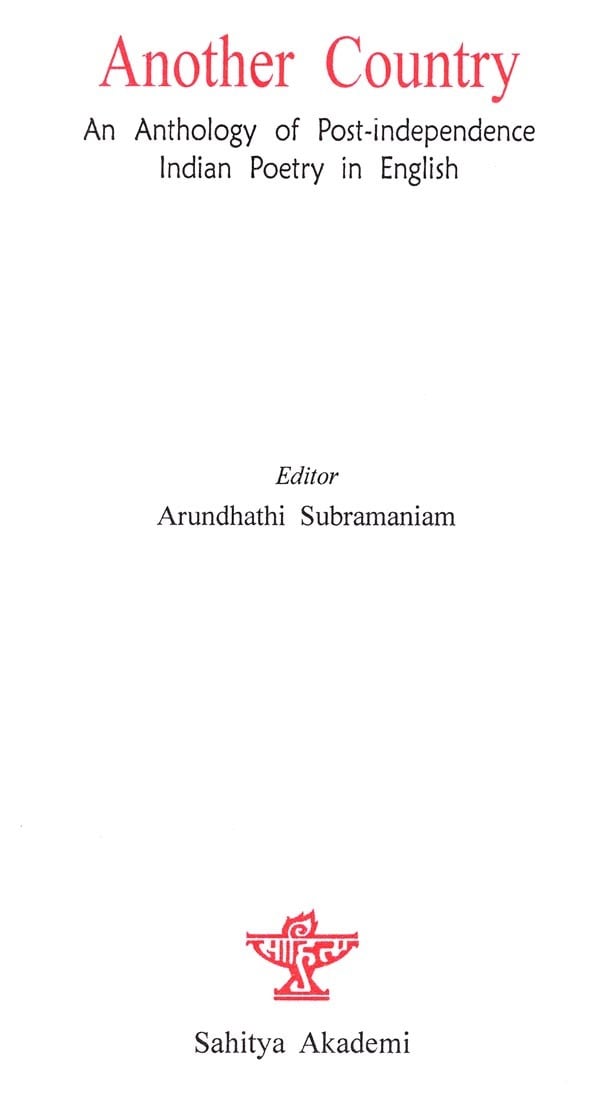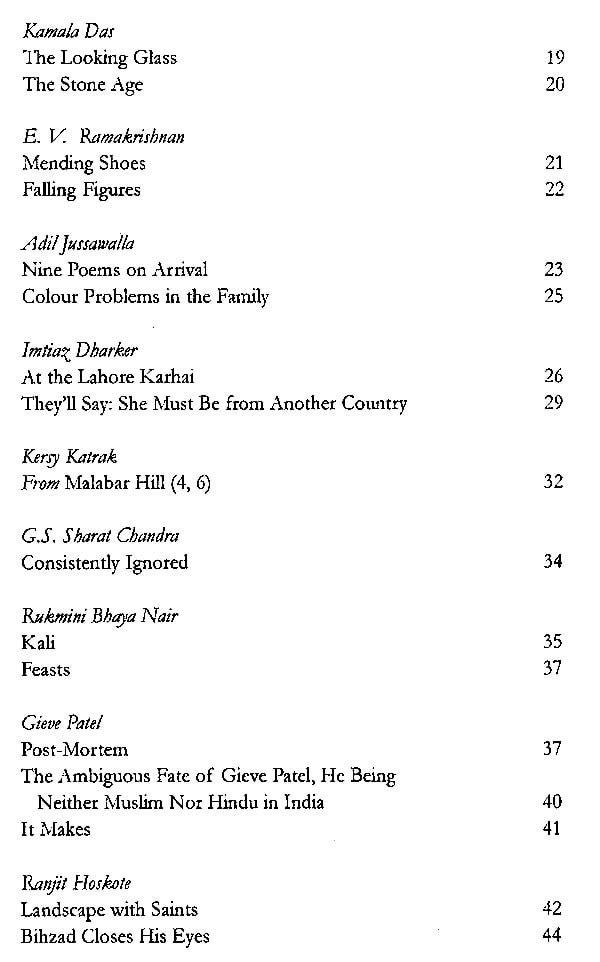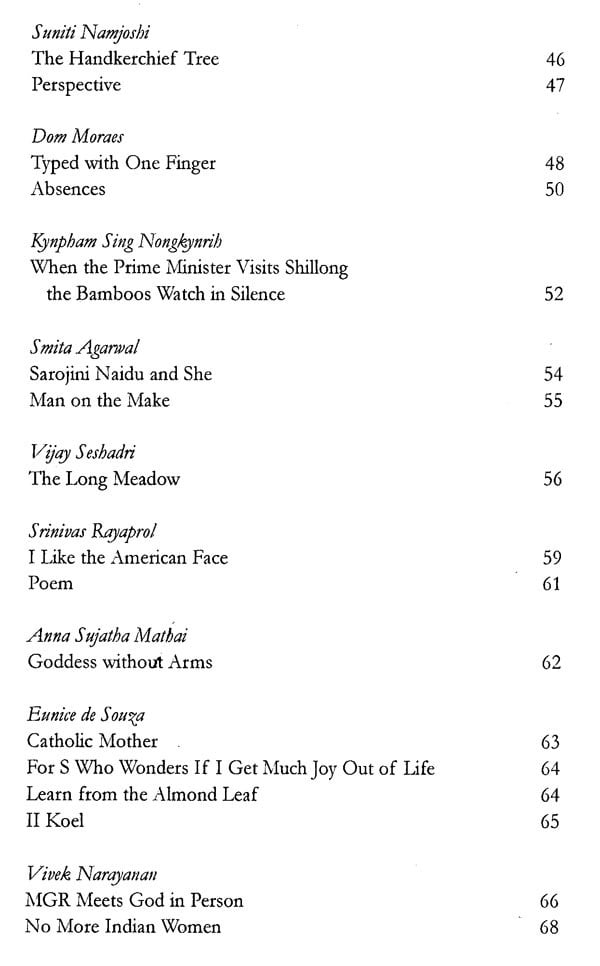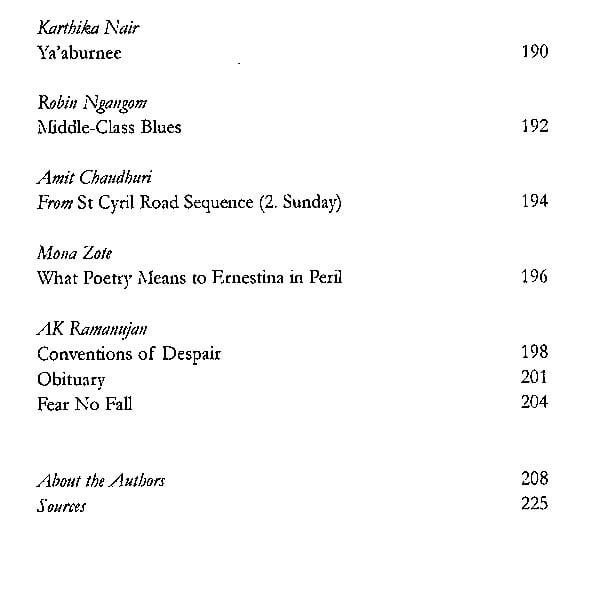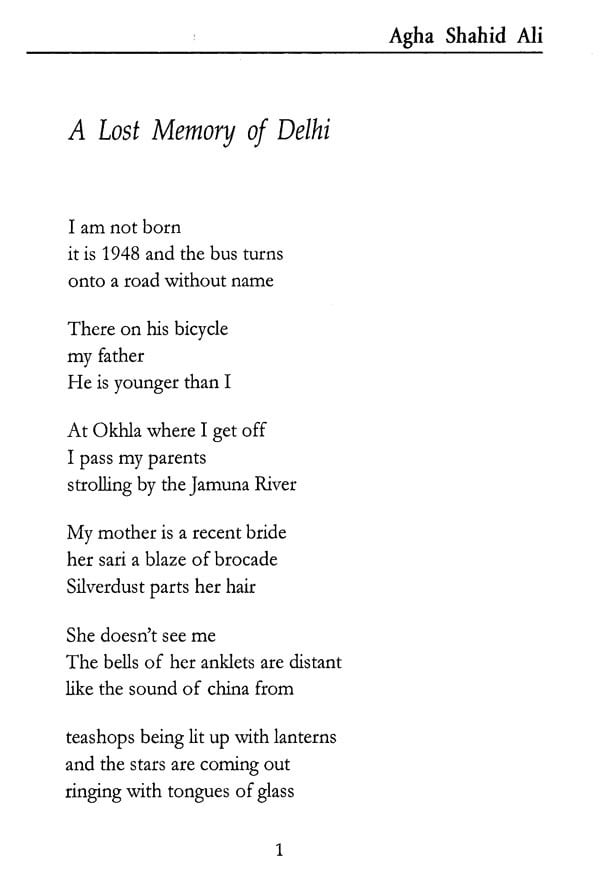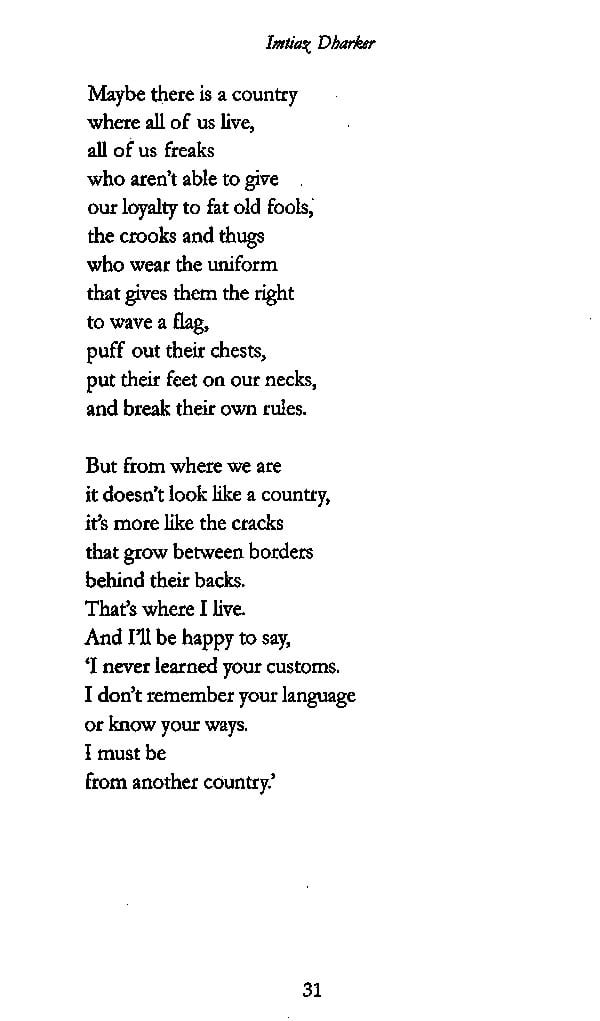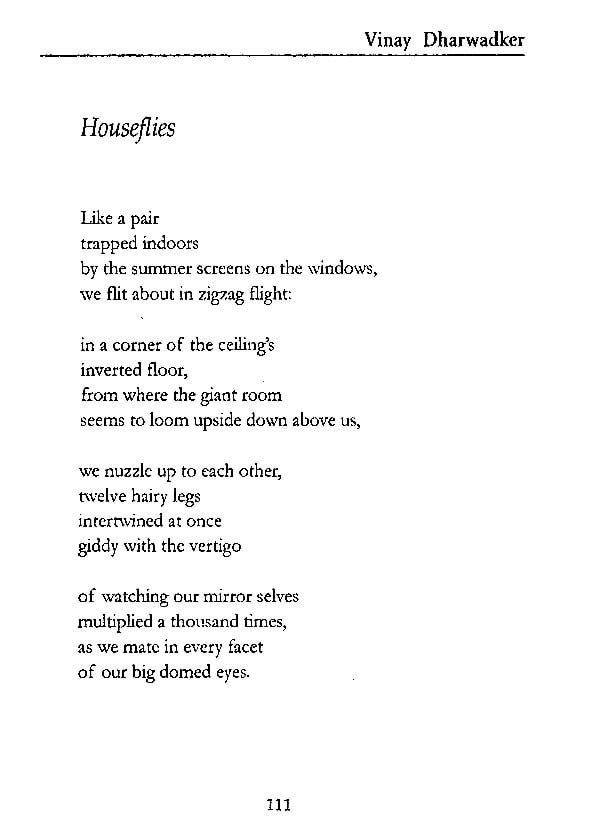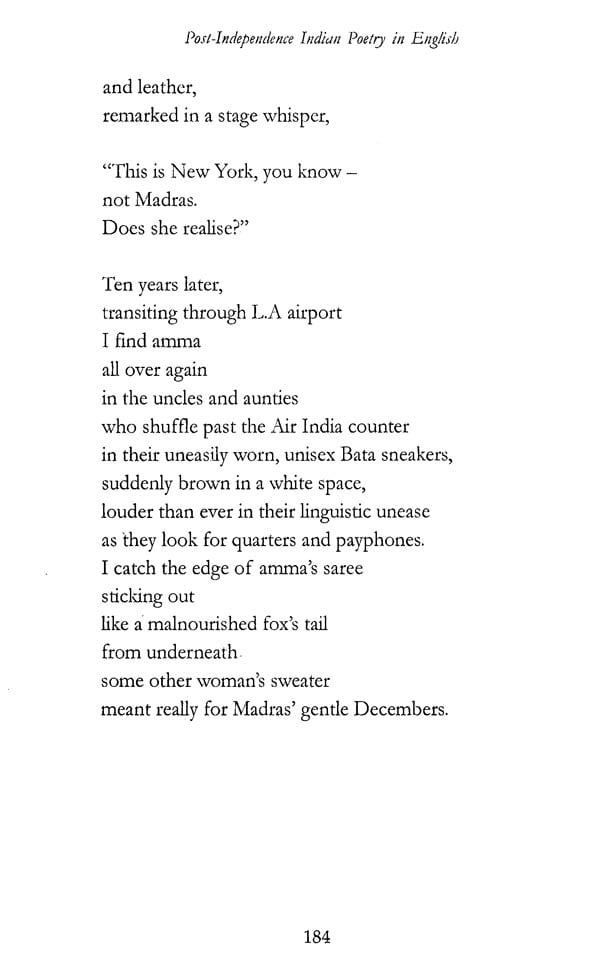About the Book "To any genuinely interested reader - one who is willing to be surprised, one who reads poetry for enchantment, insight, stillness, the sudden start of recognition - it is evident that this is a scene of considerable vibrancy. It is clear that English is employed here not as a language on loan, but as the rich, spluttering resource of the marrow and the bloodstream. It is just as clear that the formal poise of the best of this verse is not the result of soulless craft, but of the ongoing struggle to wrest the magical out of the mundane. It is equally clear that in their most interesting work, these poets aren't trying to be Indian or contemporary or cutting-edge or postcolonial in any trite or self-conscious way."
About the Author Arundhathi Subramaniam is a poet. She worked over the years as poetry editor, critic and cultural curator. She is the author three books of poems, most recently Where Live: New and Selected Poems (Bloodaxe Publishers, UK, 2009). Her prose works include biography of a contemporary mystic, Sadhguru: More Than (Penguin,2010) and The Book of Buddha (Penguin, 2005). She has recently sacred journeys (Pilgrim's India, Penguin Ananda, 2011) and co-edited anthology of contemporary Indian love poems (Confronting Penguin, 2005). received the Award for poetry, the Visiting Arts Fellowship and the Charles Wallace Fellowship. edits India domain the Poetry International She divides time between Bombay and yoga centre in south India.
Foreword After independence, a new era of poetry was ushered in, in India. There were notable developments especially after 1950 when, after all the upheaval had died down, India began to craft her new visage. From then to now, several changes have occurred in both the themes and the form and style of poetry. This was the postcolonial era. There were several changes in the society, culture, history, politics and literature of the entire world. It also affected the poetry of every Indian language. There were several local changes in the culture, society and tradition of every language. That is the reason the Sahitya Akademi decided, keeping the developments after 1950 in mind, to publish an anthology of poetry in every Indian language, in which as many samples of verse be presented as possible. This is to reveal the craft of poetry as it has been brought out through its form in the poetry of every language.
Under this scheme, first an anthology of selected poems sin every language has been prepared in the original language, and, after that has begun the process of translation of these into other Indian languages.
Introduction A fellow poet who writes in another Indian language recently asked me what I proposed to write in the preface to this anthology "The usual sales pitch about Indian writing in English?" he asked dry.
The question gave me pause. It reminded me of the way in which Indian poets in English are sometimes viewed - as a self congratulatory bunch of cronies. Ironically, those within the scene are aware of a very different lived-in reality - one of simmering disagreement, a fair share of self-doubt, near-inaudibility (compared to their compatriots working on the novel), and hours of plodding work, punctuated, if they are lucky, by an occasional murmur of appreciation.
I am glad my friend asked the question, however. It helped clarify my own response to the poetry I read and write. No, I am not ecstatic about the state of Indian poetry in English. (But then I am not ecstatic about poetry; only, at times, about poems.) What I do know is that Indian poetry in English is alive. And like all things live, it engages, it annoys, it excites. On several occasions, it has given me the jolt of wonder for which I turn to poetry in the first place.
**Contents and Sample Pages**
